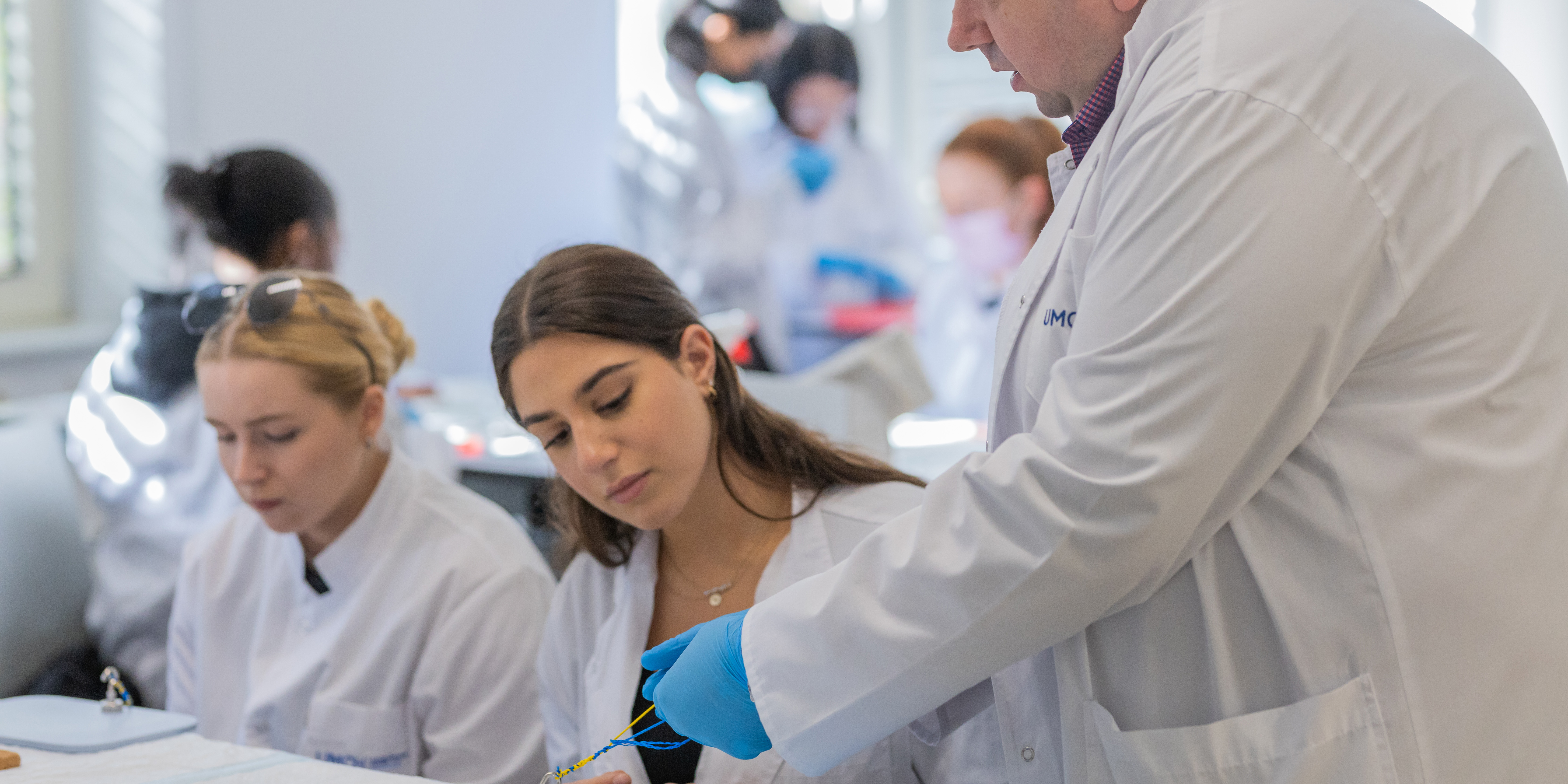Stay healthy and goal-oriented throughout your studies
The Department of Counseling and Professional Guidance at UMCH (DCPG) enables students to benefit from various forms of psychological support if and when needed – starting with career advice/counseling and continuing with educational coaching, psychological counseling, and cognitive-behavioral therapy in order to perform successfully in their academic activities.
Factors such as the personality profiles of the respective students and their individual strengths and weaknesses are taken into account. With the help of professional coaching measures which are explicitly designed for the use in the academic sector, students are supported in making decisions and learn how to deal with the challenges of their demanding medical studies in an optimal way. In addition, psychological counseling and cognitive-behavioral programs counteract the risk of burnouts and others psychological problems and reduce early academic dropout.
Participation in the DCPG programs is entirely voluntary and available to all UMCH students free of charge.
Educational Coaching
Besides providing career coaching during your studies, the UMCH Educational Coaches offer general guidance for achieving the optimal study performance and developing a successful medical career. For example, these objectives can be accomplished through the identification of most effective learning techniques and the establishment of individual goals for the upcoming module(s), resulting in well-founded decisions regarding the choice of certain specializations during your studies.
For these purposes, our Educational Coaches offer individual coaching sessions, as well as workshops, seminars, and lectures in which they familiarize you with a variety of approaches and useful strategies for optimizing your study experience at UMCH, for reaching your personal goals in the most effective way, and for acquiring good academic outcomes.
Career advice
In the area of career advice, the program aims, among other things, for making it easier for students to integrate into the professional environment later on. Above all, they are supported in deciding in which subject area they would like to work after graduation and setting clear professional goals. To begin with, an expert opinion is drawn up based on the Five-Factor Model of Personality (FFM), which considers the five personality traits of openness to experience, conscientiousness, extraversion, agreeableness, and neuroticism in relation to career development.
Subsequently, students receive an individual personality profile that depicts their personal tendencies (e.g., more or less extraverted, more or less open, etc.), as well as the strengths and weaknesses associated with the individual personality traits. Finally, based on this, a list of medical specialties that best match the respective personality type is drawn up. However, these suggestions are never final, but rather indicative. Additionally, over the course of the program, the expectations of potential employers and the challenges of the medical job market are discussed with students as well.

Psychological counseling
Psychological counseling is a complex process, consisting of psychological assessment and intervention. The meaning of using this method is to identify and solve psychological problems of the students related to stress, worries, and uncertainty during the academic year. Especially in the first years of medical school, these psychological manifestations can be considered a normal reaction, resulting from the difficulty of academic tasks/exams, as long as their intensity is not dysfunctional for the student. The main activity within psychological counseling is based on the concept of emotional regulation, acceptance, cognitive diffusion, behavioral analysis, and many others. The objective of the program is to help students to develop new skills and adaptive coping mechanisms in order to handle/manage efficiently their negative emotions/stress, both during the exams and/or different academic tasks, and their everyday life.
Cognitive Behavioral Therapy
In some specific, complex, and stressful circumstances, certain human beings are predisposed to develop different psychological issues, for instance depression or anxiety. Since Cognitive Behavioral Therapy (CBT) is one of the most efficient methods for treating these psychological problems, DCPG programs offer psychological support for students, using this type of evidence-based psychotherapies. The CBT uses protocols for treating different psychological problems developed by the Beck Institute for Cognitive-Behavioral Therapy (Philadelphia, USA). Students have the possibility to access psychotherapeutic services, benefiting from a minimum of three up to a maximum of 15 CBT therapy sessions, especially when the student’s psychological problem(s) are related to academic activities. Standard CBT can be augmented with Virtual Reality (VR) for phobias, panic attacks, generalized anxiety disorders, and performance anxiety. All data collected from/during the psychotherapeutic processes will be considered confidential, as provided by Law 213/2004 and its enforcement rules as well as by the European GDPR.
Your Information is save with us
Any information provided by you during the counseling process will be treated in the strictest confidence and in accordance with the respective national and European regulations and other rules – in particular the code of ethics for psychotherapists.
News














